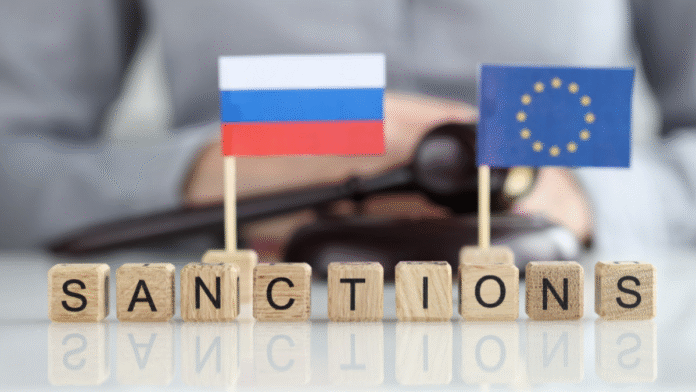The European Union is preparing new sanctions aimed at companies that helped Russian ships hide their identity using fake flags. These ships, known as part of Russia’s “shadow fleet”, are believed to be moving oil and other goods secretly, avoiding international sanctions.
According to reports, the EU plans to act against three companies connected to the flags of Aruba, Curaçao, and Sint Maarten. These Caribbean territories are part of the Kingdom of the Netherlands but do not have full rights to issue official maritime flags. The companies are accused of falsely registering ships under these names to disguise their true ownership and avoid restrictions.
Documents seen by officials reportedly show that at least eight tankers from the Russian shadow fleet have used these fake flag registrations. These ships are said to have received fraudulent certificates—papers that look official but are not valid under international law.
The move marks one of the strongest steps yet by the EU to target not only Russian assets but also the global network of companies helping Russia bypass sanctions. The new measures are being discussed among EU member states as part of the 19th sanctions package against Russia.
Zelensky unveils new sanctions plan to choke off foreign tech fueling Russia’s missiles and drones
What Are False Flags and Why They Matter
Every ship that sails internationally must fly a national flag. The flag shows which country is responsible for that ship’s safety, laws, and inspections. This is called the “flag of registry”. Countries that allow foreign ships to register under their flags are known as flag states.
However, some companies and shipowners use false flags—they pretend their ships belong to a country that never approved them. This makes it easier to hide who really owns or operates the vessel. These fake flags can also help ships avoid taxes, safety checks, or sanctions.
The EU believes that some groups have been selling these fake documents on behalf of territories like Aruba, Curaçao, and Sint Maarten. These certificates made it look as if the ships were legally registered, even though they were not.
Russia’s state-controlled crypto exchange aims to bypass SWIFT and outsmart sanctions
Earlier this year, the Netherlands alerted the International Maritime Organization (IMO) that companies were issuing forged registration papers using the name of Sint Maarten. The EU sees this as a serious breach of maritime law, as it allows ships to operate without proper oversight.
The issue has become even more critical because of Russia’s shadow fleet. This fleet includes hundreds of old tankers and cargo ships that continue to move Russian oil around the world, even though many Western countries have banned it. By using fake flags, these ships can sail under different identities, making it hard for authorities to track them.
Inside the EU’s 19th Sanctions Package
The proposed action against the false flag providers is part of the European Union’s 19th sanctions package against Russia. Member states are currently discussing the package, which must be approved by all 27 EU countries before it becomes law.
Besides targeting companies behind fake flags, the new sanctions also focus on the Russian energy trade. The EU plans to speed up its plan to stop buying Russian liquefied natural gas (LNG). Instead of ending these imports by late 2027, the deadline would now move up to January 1, 2027—one year earlier.
The sanctions will also remove remaining exceptions for major Russian oil companies Rosneft and Gazprom Neft and expand the list of restricted ships linked to the shadow fleet. Reports suggest that around 118 additional vessels could face restrictions, meaning they would be banned from EU ports and denied access to European insurance or financial services.
European Commission President Ursula von der Leyen said that Russia’s war economy is still being funded by fossil fuel revenues. She noted that the EU must work to cut off this source of income, explaining that the bloc has been saving energy, diversifying supplies, and investing in clean energy sources to prepare for this step.
Meanwhile, individual European countries are already stepping up their own actions. For example, Denmark has announced stricter inspections for oil tankers passing through its waters, especially those heading to or from the Baltic Sea. This region serves as a key route for Russian oil exports, and tighter checks aim to block ships using fake documents or unauthorized routes.


